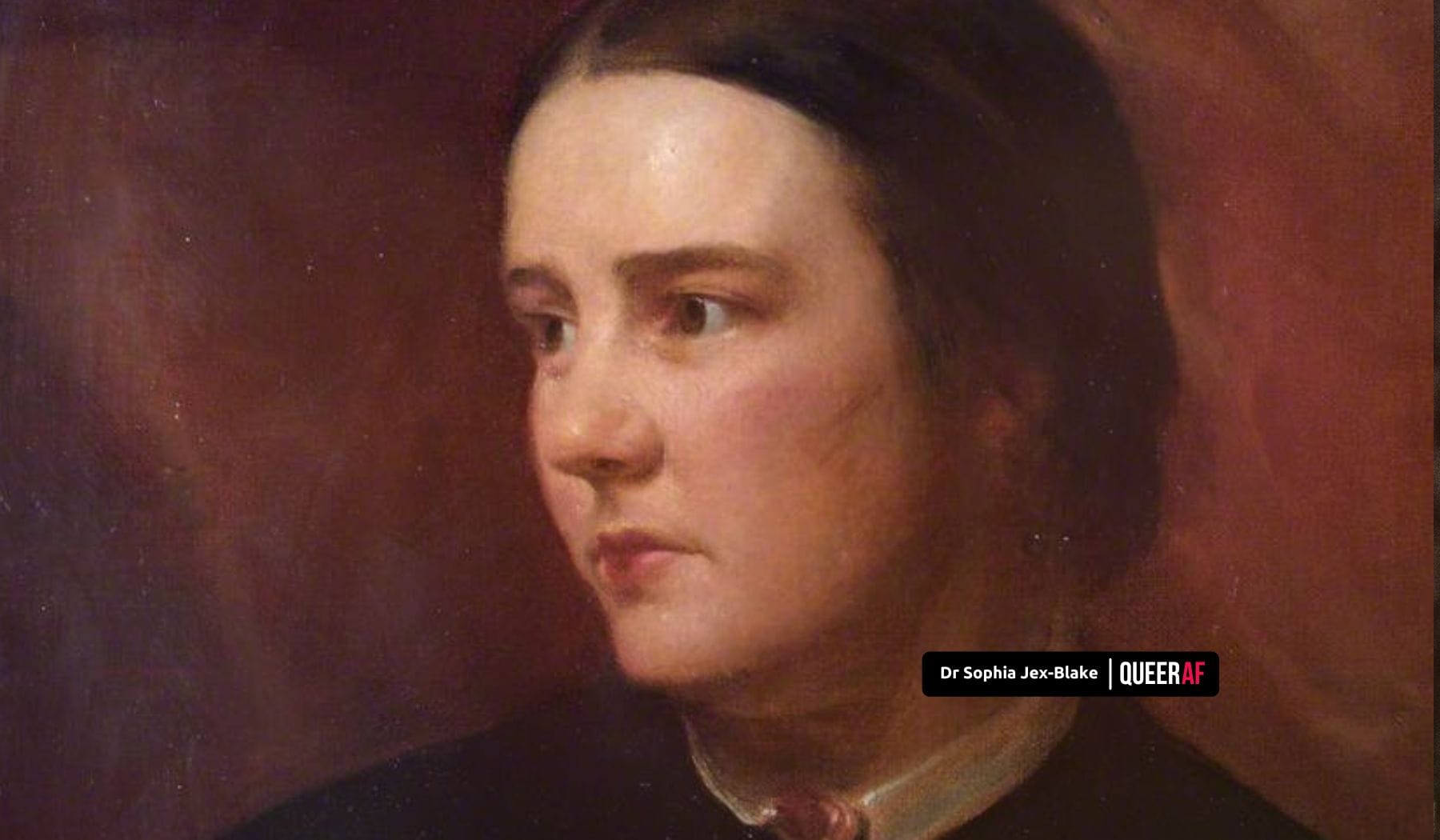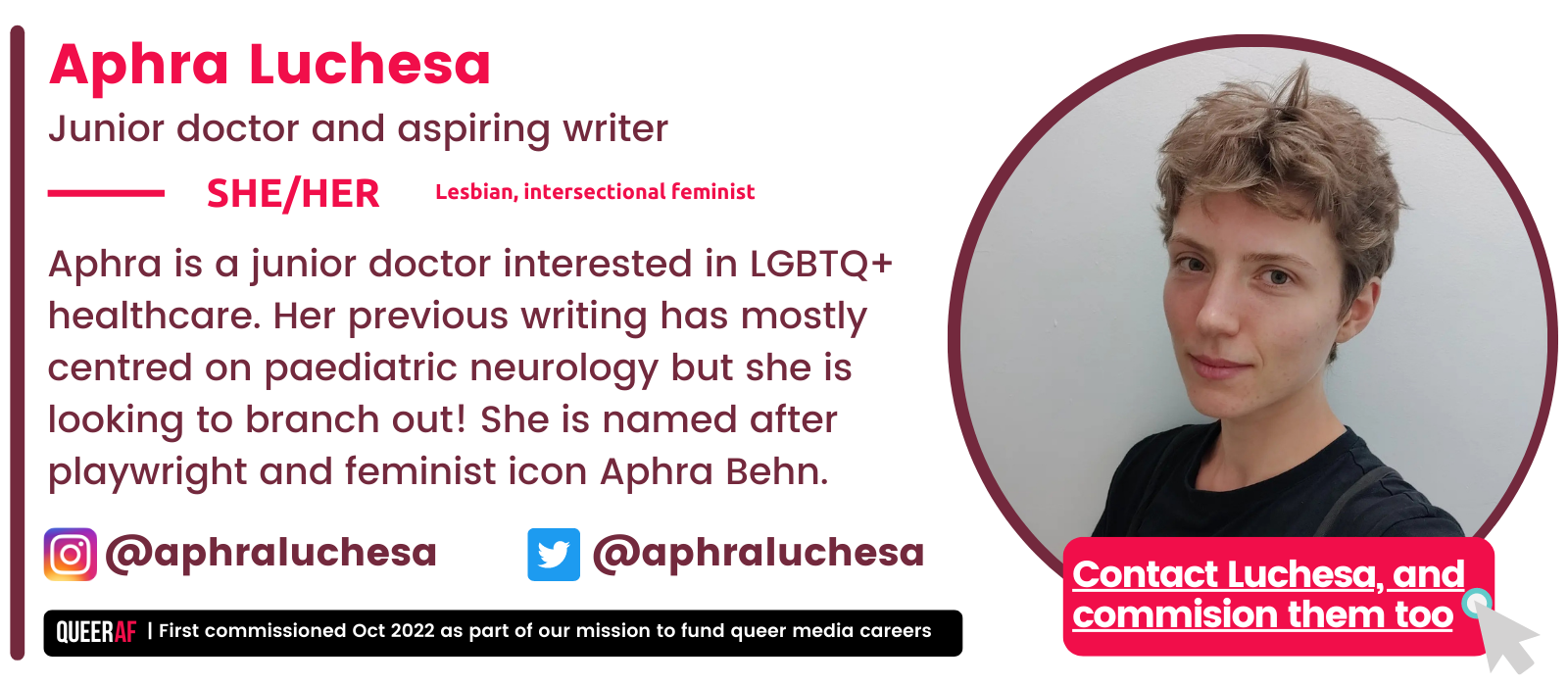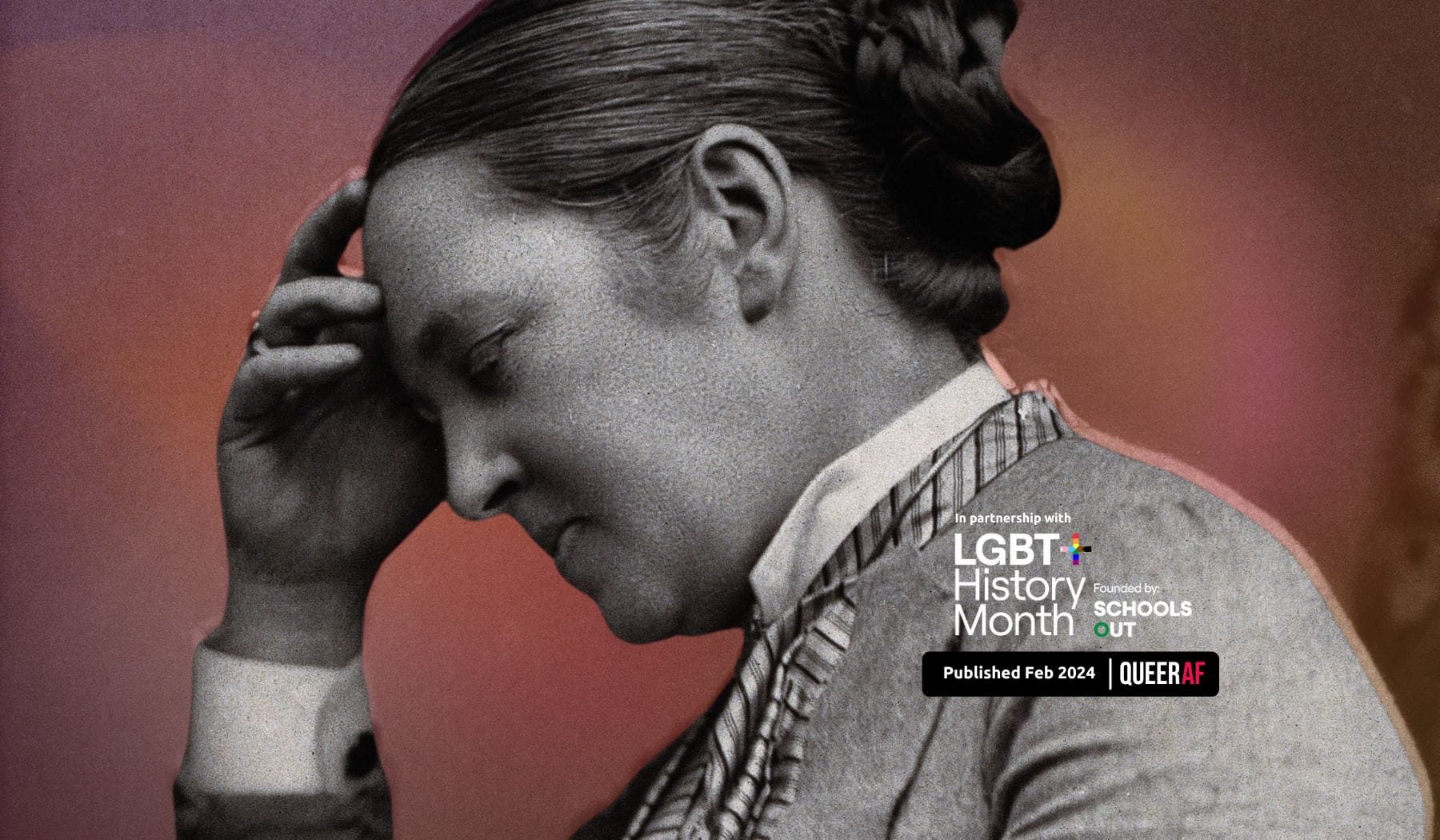This Queer Gaze is in partnership with LGBT+ History Month in the first of a series based on their ‘Under The Scope’ resources for schools about LGBT+ people who made history in the field of medicine.

Lesbians are too often forgotten. Much historical writing focuses on men. Women living together were often known as "just good friends."
Innumerable inspirational figures are concealed by the conventions of who is considered of historical note.
I recently learned about one of these extraordinary people: Dr Sophia Jex-Blake (1840-1912).
She was a lesbian and also one of the first women to study medicine in the UK. She went on to become Scotland’s first-ever practising female doctor. But it was a fight to get there - and many people stood in her way.
After multiple universities rejected her, she was able to begin her studies at Edinburgh University with six other women.
They became known as the Edinburgh Seven and faced extraordinary hostility, culminating in the Surgeon’s Hall riot.
Several hundred people blocked the women from attending an exam, shouting abuse and throwing rubbish at them. They were later prevented from graduating, although many completed their studies abroad - Dr Jex-Blake finished hers at the University of Bern in Switzerland.
But this was just the start of her journey. Dr Jex-Blake campaigned relentlessly for women’s right to become doctors and founded two medical schools and Scotland’s first women’s hospital.
Her partner, Dr Margaret Todd (1859-1918), had her own impressive career, including publishing a novel during her medical studies under the pseudonym Graham Travers.
Despite the enormous progress made by Dr Jex-Blake, the fight she began is still ongoing.

Today, 48% of UK doctors are women. Yet only 37% of medical and 14% of surgical consultants are female, and they face a significant gender pay gap and inequality at work.
It’s often said that “you can’t be what you can’t see”, but a common experience many queer people have is of discovering ourselves in the absence of role models.
As a medical student, I worried about having to conceal my sexuality at work as I didn’t know of any lesbian doctors. It would have been so helpful if Dr Jex-Blake had been celebrated and discussed.
I currently work at the Royal Free Hospital, where she founded the Royal Free Hospital School of Medicine for Women (now merged with UCL Medical School). Frustratingly, requests to honour her memory with a plaque have been rejected.
Reading Selby Wynn Schwartz’s After Sappho and Diana Souhami’s No Modernism Without Lesbians recently, I discovered a community of revolutionary early-20th-century lesbians who lived unapologetically and with enormous style.
It’s given me a new lens through which to view my lesbian identity and our community in 2024, as did learning about the lesbian scene of the 1980s through the Rebel Dykes documentary.
That’s what struck me while learning about Dr Jex-Blake: knowing about people like us who have lived through different times and struggles helps us to contextualise our existence.
Dr Jex-Blake became a doctor despite enormous opposition and misogyny, multiple rejections and setbacks.
We can learn from her how to overcome the barriers faced today, the courage to follow unconventional pathways, the determination not to let prejudice win, and the dedication to band together with others.

Get the Queer Gaze in your inbox each week with our free weekly newsletter or pitch to write an edition for us now. This edition was created in collaboration with LGBT+ History Month. This year the theme is 'Under the Scope', a look at LGBT+ heroes in the field of medicine. Each article in the series is created using the Schools Out resources on this year's five official history heroes.
QueerAF is changing how queer stories are funded
QueerAF is member-led and ad-free. This article is part of our landmark scheme the 'Queer Gaze' commissioning, mentoring and running skill sessions with queer writers.
Our approach means you get a top-quality read held to the highest standards that you can keep us accountable to - while helping to change the media landscape with a new generation of queer creatives.
We commissioned it because members like Jan Gooding, Char Bailey, Whitney and Megan Bacon-Evans told us they wanted to see more content about and by lesbians.
That's how we make editorial decisions - we trust our readers and members. Removing gatekeepers and advertisers from the process allows us to focus on what counts instead of worrying about clicks for advertisers.
Will you join the movement revolutionising the way LGBTQIA+ journalism is funded?










